Best
ROSIN VIOLIN
STUDENTS
Clear Rosin Nice Grip for Easy
Application
-
Overall: Keeps Your String's Tone Clear And Dynamic
-
Best Feature: Hand-poured and Manufactured In The UK
-
TedScore™: 9/10
Best
OVERALL VIOLIN
ROSIN
-
Overall: Formulated With The Original Kaplan Recipe From Ladislav Kaplan
-
Best Feature: Available In Light And Dark Varieties
-
TedScore™: 10/10
Best
HANDCRAFTED ROSIN
Violin Rosin Used for All Techniques and Dynamics
-
Overall: 100% Hand-crafted Rosin
-
Best Feature: Designed To Maximize The Potential Of Violin Players
-
TedScore™: 9.2/10
Knowing how to clean violin strings is one of the habits I must do as a violinist.
Not only does it preserve the tone quality of my string, but it also extends its lifespan (Who wouldn’t want to have strings that last!).
It can be very discouraging when your strings don’t produce the beautiful sound they used to make.
This is especially true when you already know the strings are quite dirty. You tried to clean them using your methods, and yet you still got the same results—a dull and fuzzy tone.
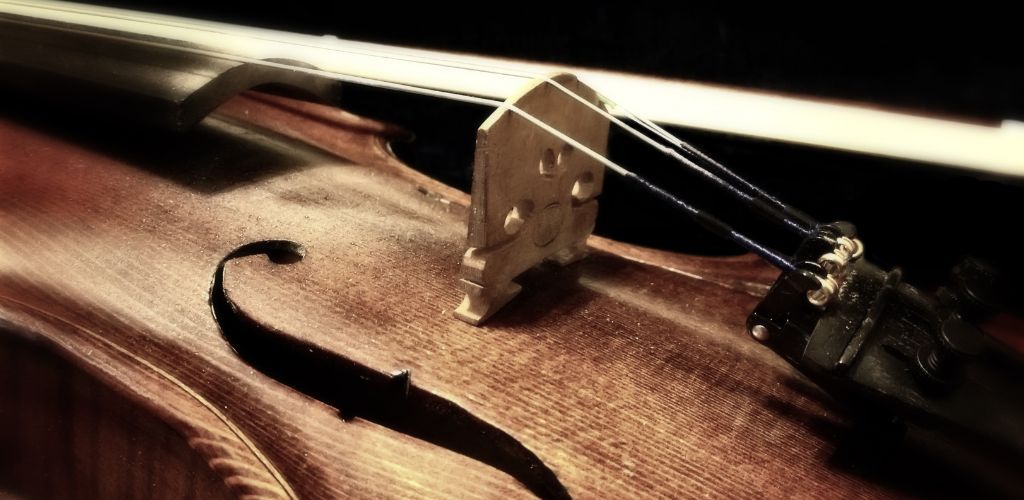
Fret not, my friend! (Apologies – really bad joke!)
This article will teach you how to remove ALL dirt, oils, and rosin build-ups on your strings.
You will know the suitable materials to prepare, the proper cleaning technique I highly recommend, and the right maintenance strategies.
Let’s keep your violin in top condition and let the string cleaning begin!
Preparing for Cleaning
The first thing that you need to do is to prepare. You can’t go into battle without your weapons, right?
You must know what supplies to use and have the right cleaning products for string instruments in hand.
Identifying the Right Cleaning Materials
So, let’s talk specifics—knowing the suitable materials will make your string cleaning easier.
String cleaners: are materials like a microfiber cloth or any cleaning cloth (it can be your old T-shirt!) that can be used with liquid cleaners.
Rosin remover/String cleaning solution: these are gentle cleaners that are designed to help you keep your instrument clean. If you can’t get a clearing solution, you could always use pure alcohol.
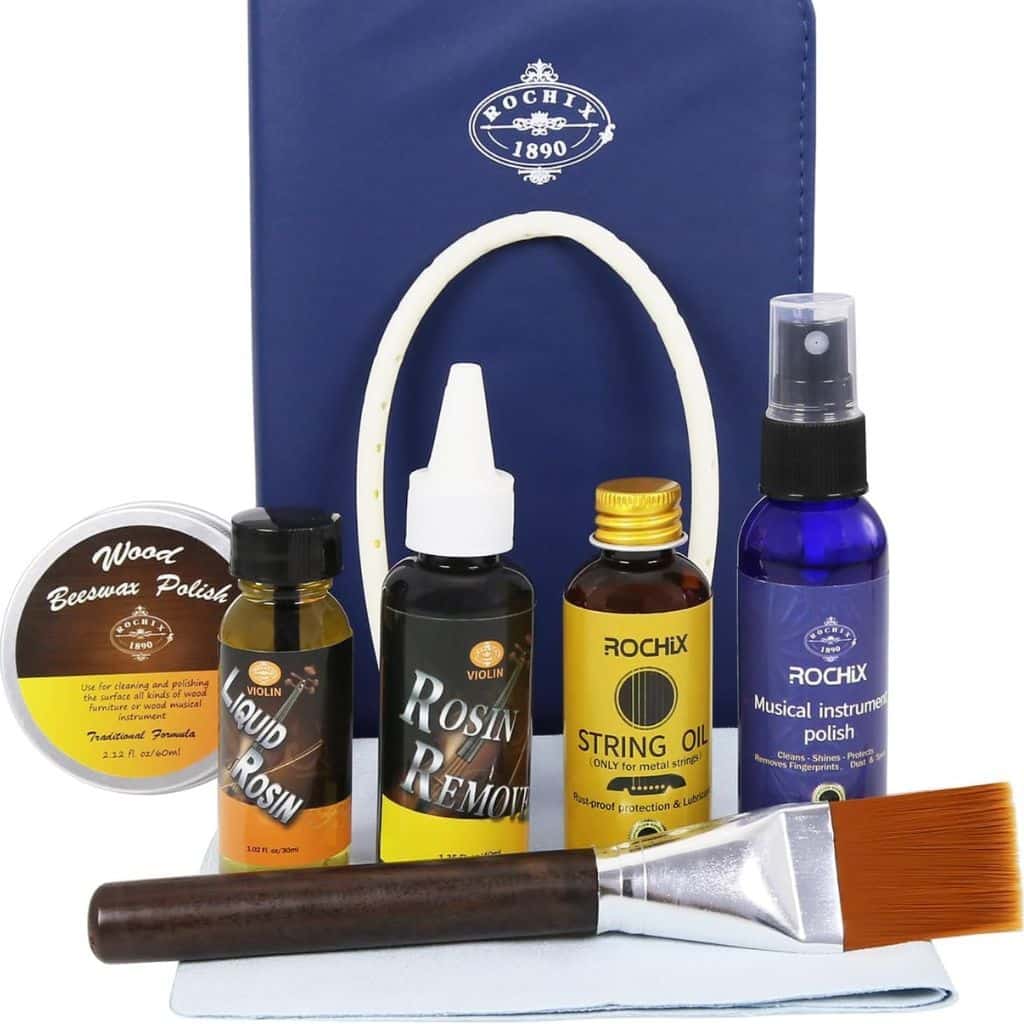
W.E. Hill & Sons String Instrument Varnish Cleaner
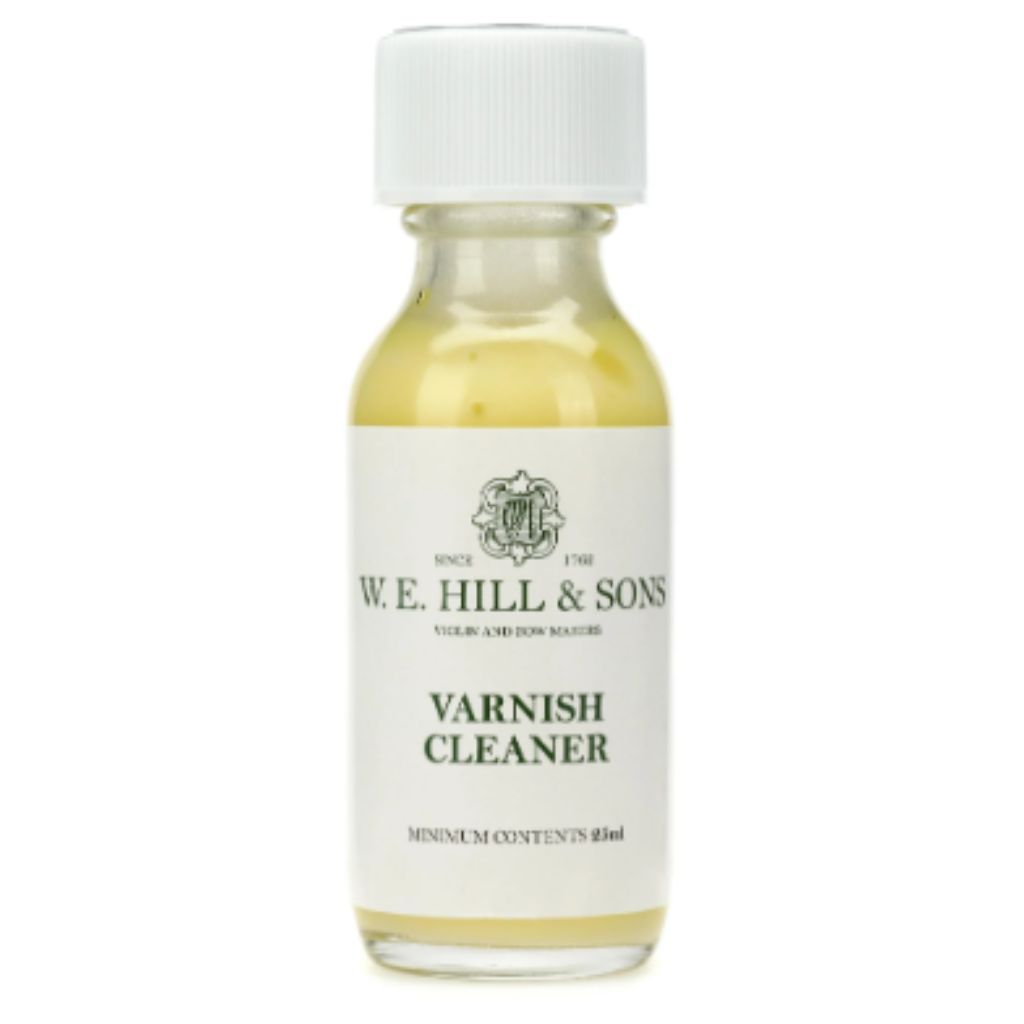
FEATURES: Cleans your stringed instrument to a stage-ready shine
OTHER INFO: Made by Violin craft makers - W.E. Hill & Sons
- Removes rosin and other gunk
- Safe on modern and traditional varnishes
- Comes in a small bottle
When you click ‘Check Price’, you’ll see there are loads of great places to buy this item. Our personal favorite is Sweetwater for the US, and Thomann and Gear4Music for the UK & Europe.
They are the largest music retailers, with excellent customer service, competitive prices, really fast shipping, and the longest guarantees.
The professional musician who wrote this article combined many things,
from the product build, manufacturer’s reputation through to feedback
from other users, to create our famous TedScore™.
Gathering the Essentials
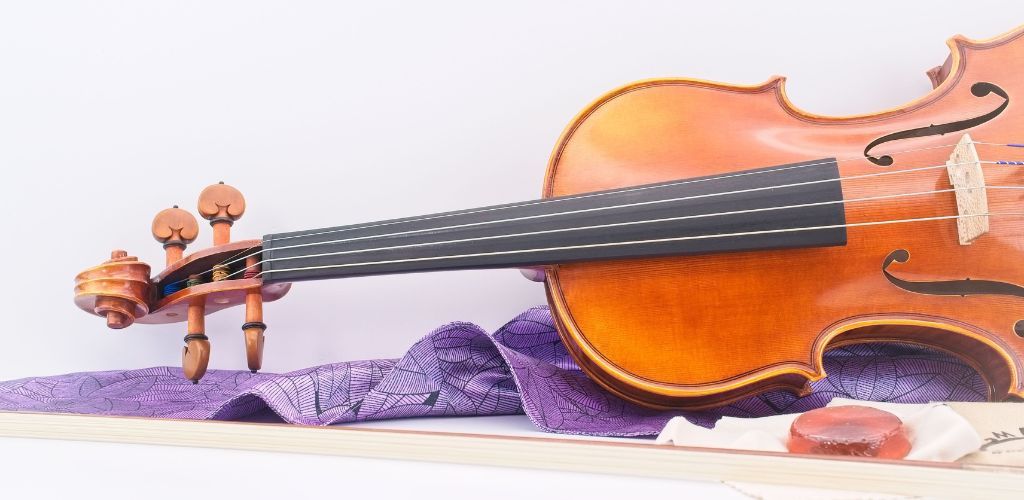
Next, you have to gather the following items (I’d like to say “gather these bad boys,” but hey, they are excellent and simple to find items!):
Microfiber cloth – this will help wipe away fingerprints and persistent grime.
Isopropyl alcohol/ String solutions – this is for the removal of sticky rosin residue. But remember to use small amounts—too much can damage strings.
Plastic cards (ex., unused credit cards or plastic IDs) – can be used as a scraper to remove dirt and dusty strings properly.
Dry clothing – this will help dry the strings after a gentle clean.
Cleaning the Violin Strings
After knowing and gathering the materials you need to use, you can start cleaning your instrument’s strings!
Removing Rosin Build-Up
First, you need to remove any excess rosin from the strings gently.
A clean, dry microfiber cloth works best for this (or any clean, dry fabric will do!).
Remember to use gentle swipes from the bridge to the end of the fingerboard.
Technique: Add a small amount of alcohol or string cleaner to the cloth and lightly pinch each string; slide from the middle towards the end of the string. Gently use the plastic card to remove any hard rosin residue that doesn’t come off after wiping.
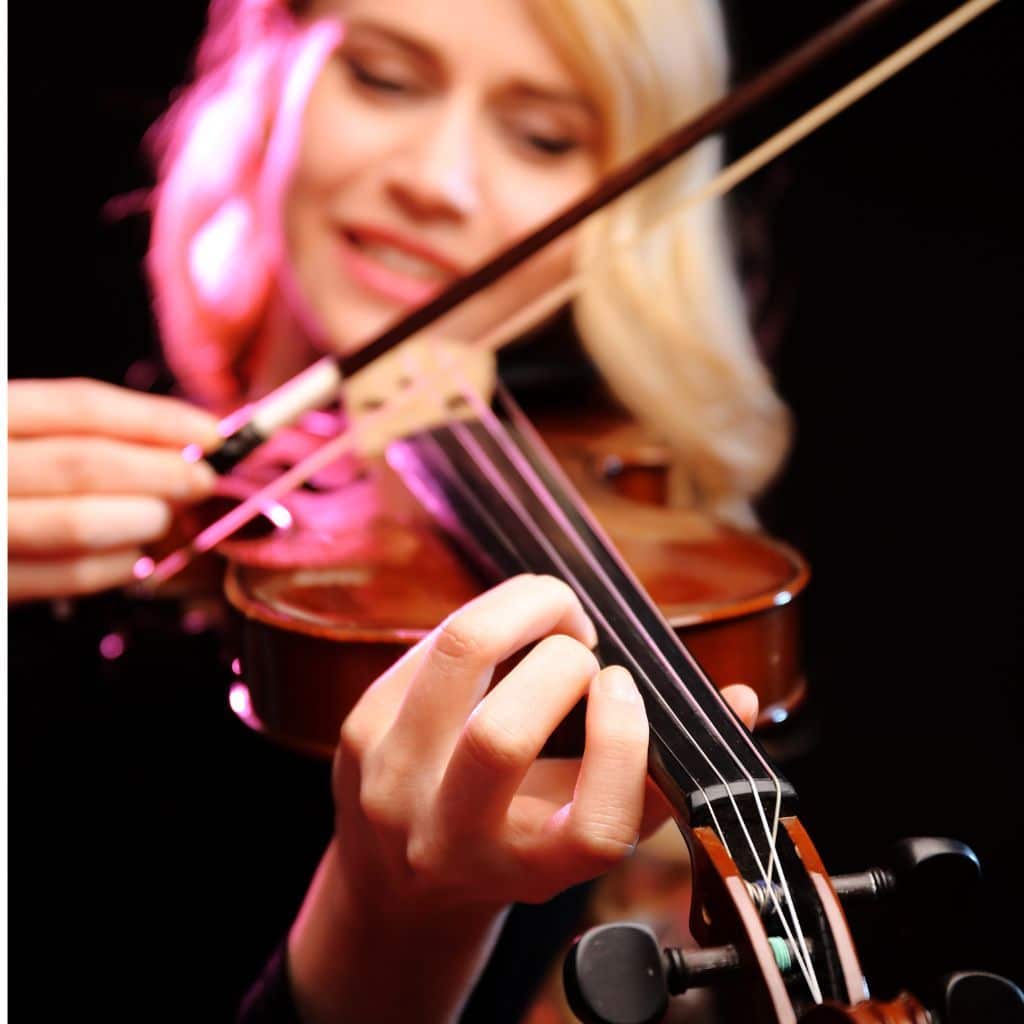
Wiping Down the Rosin Dust Off the Strings
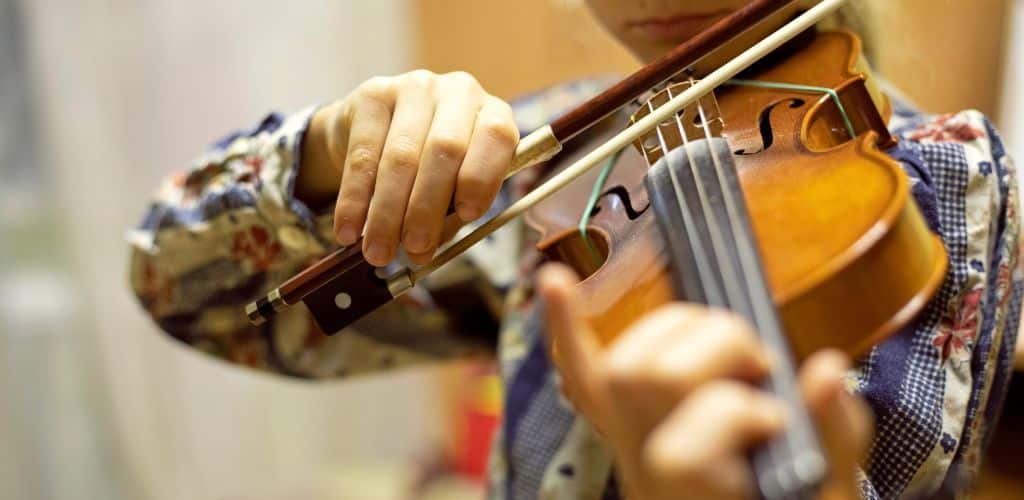
Then, use a second clean microfiber cloth to wipe down the strings. This helps eliminate any residue that may have been left behind.
Frequency: Do this after every practice session.
Tips: Avoid pressing too hard (don’t apply too much pressure!); carefully preserve your strings.
Drying and Finishing Touches
Finally, I recommend that you make sure the strings are completely dry.
An excellent way to finish is to give your strings another drying cloth session to ensure no leftover cleaning solution or moisture.
Dry Cloth: Always finish with a completely dry cloth.
Final Check: Review the strings to confirm they’re clean and rosin-free.

Caring for the Violin
Taking care of your violin is integral to its performance and longevity. Proper maintenance can significantly enhance its sound quality and preserve the delicate balance of its parts.
Regular Maintenance
Cleaning after playing is essential.
Always clean your strings and keep a clean fiber, which you can use to wipe the string every after-play to get rid of that rosin buildup.
Do not forget the fingerboard!
Over time, oils and residue from your fingers can accumulate on the fingerboard; clean it occasionally with a cloth slightly dampened with alcohol, carefully avoiding contact with the varnish.
It doesn’t hurt to have some violin polish.
Occasionally, apply a small amount of polish to the instrument’s body. This helps protect the finish and keeps your instrument looking stage-ready every time.
Bow hair needs to be rosined regularly, but please, don’t overdo it!
Too much rosin on bow hairs can cause a buildup that dulls the sound and can get on the violin.
I know we always dread going to the doctor; however, your violin LOVES going to the violin doctor—aka a luthier!
Having a professional luthier look at your violin annually can catch issues before they lead to damage, ensuring that the tension, tuning and setup are optimal for your practice and performance.
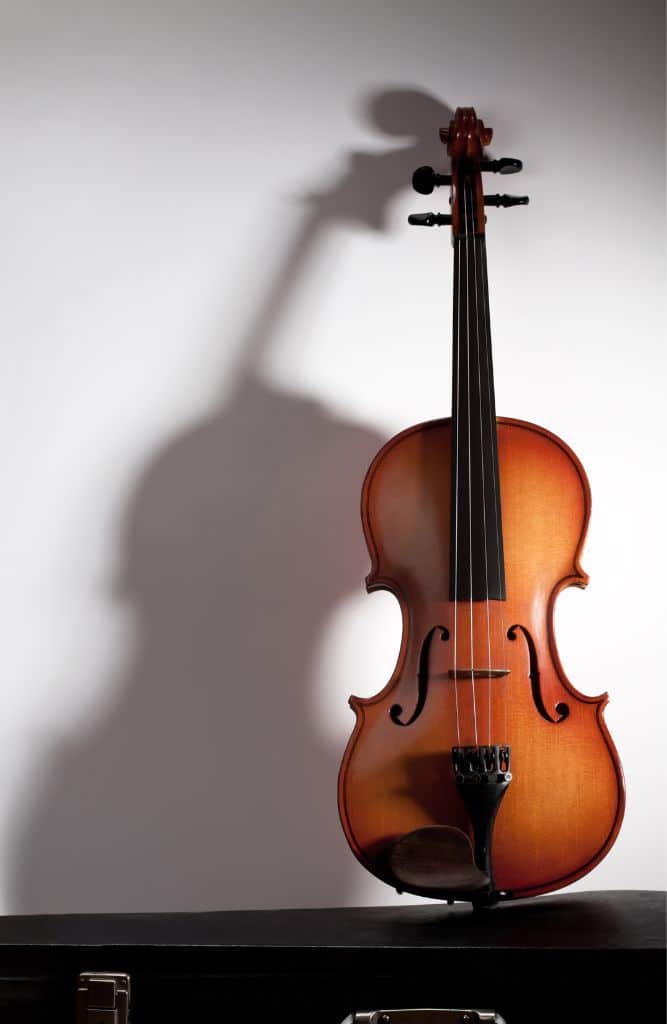
Top 5 Tips For Avoiding Damage

Do not use steel wool or any harsh cleaners. Remember, it’s not just an instrument; it’s a fragile work of art.
never touch the bow hair or the violin’s body with your fingers as much as possible. Skin oils can harm the finish in the long run and, in turn, affect the instrument and sound quality.
Adjusting the tension of your strings should be done carefully. Sudden changes can damage the violin and affect the strings’ lifespan.
When not in use, your violin should rest in its case. A well-fitted violin case protects the instrument from extreme temperatures and humidity, which can warp or crack the wood. This also keeps your violin clean!
My Top Picks for
Must-Have Rosins
BEST ROSIN VIOLIN STUDENTS:
Hidersine 3V Violin Clear Rosin
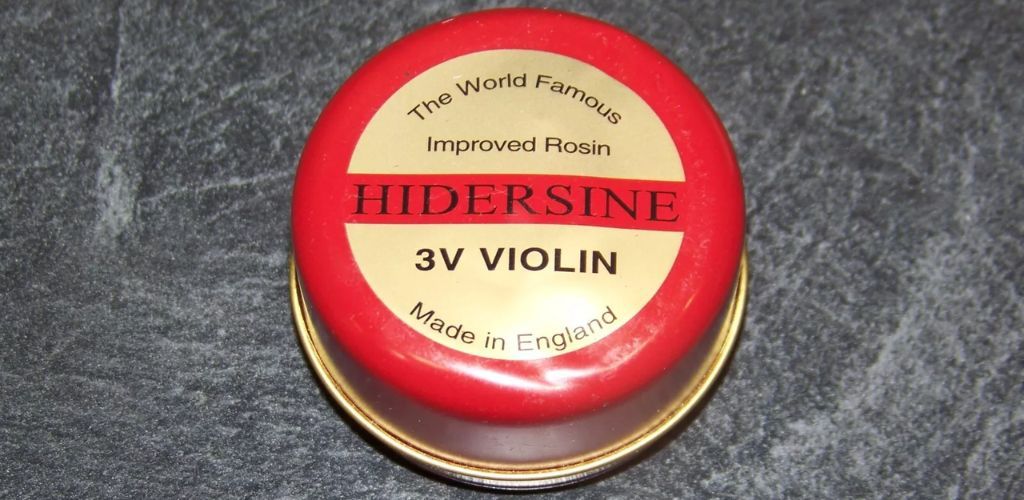
I usually recommend this product to my students because of its smooth, even grip that helps in easy application. Also, I can attest that its formulation protects the strings from dust and preserves its quality. Plus, it doesn’t take too much from your pockets!
Hidersine 3V Violin Clear Rosin
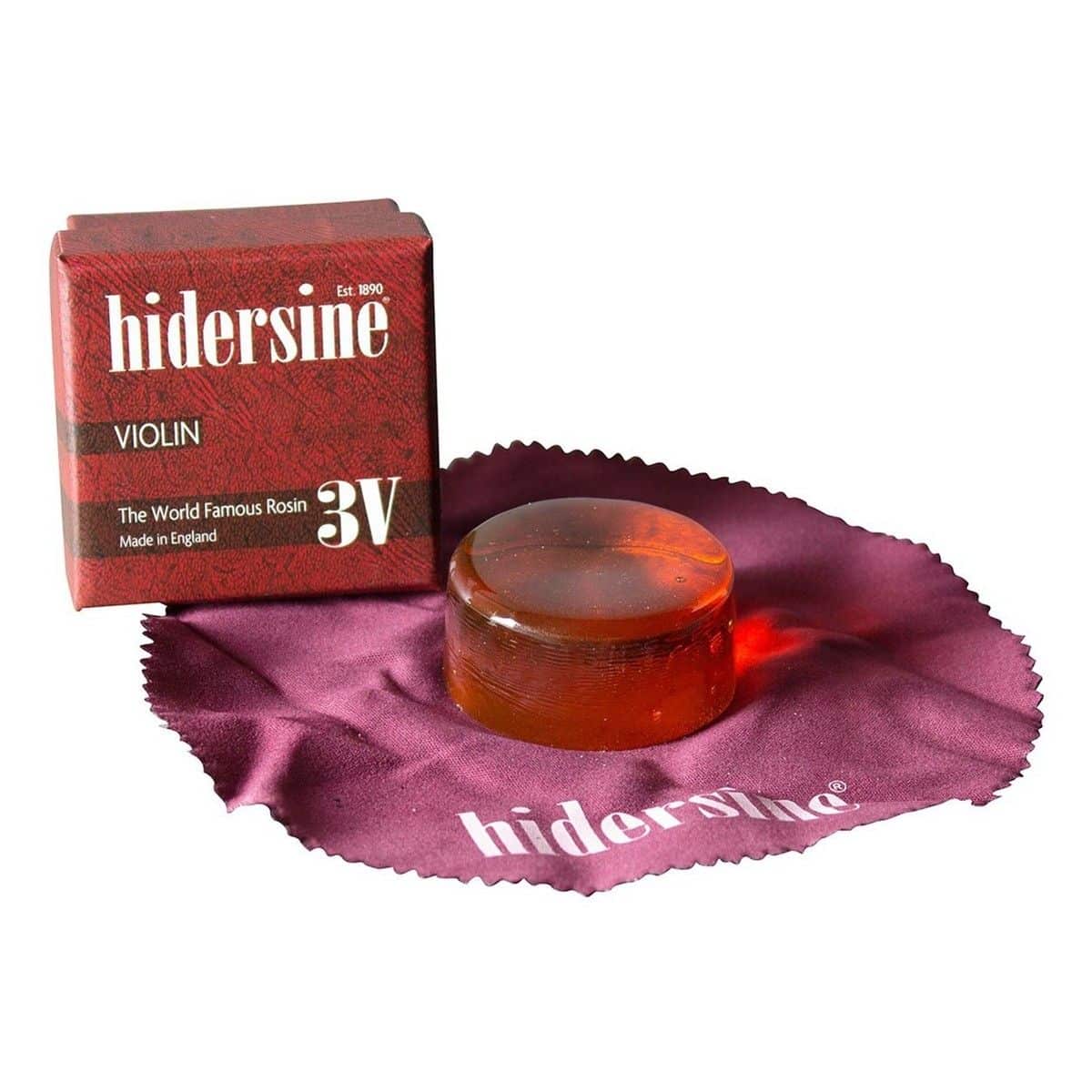
FEATURES: Keeps Your String's Tone Clear And Dynamic
OTHER INFO: Hand-poured and Manufactured In The UK
- Dark amber enhances bass tones
- Protects and restores your violin strings' liveliness
- No Cons at all!
When you click ‘Check Price’, you’ll see there are loads of great places to buy this item. Our personal favorite is Sweetwater for the US, and Thomann and Gear4Music for the UK & Europe.
They are the largest music retailers, with excellent customer service, competitive prices, really fast shipping, and the longest guarantees.
The professional musician who wrote this article combined many things,
from the product build, manufacturer’s reputation through to feedback
from other users, to create our famous TedScore™.
BEST HANDCRAFTED ROSIN:
Melos Violin Rosin
The Melos Violin Rosin is the best handcrafted rosin for me. It’s easy to apply and doesn’t produce excessive dust, which makes this my go-to accessory for my violin.
Melos Violin Rosin
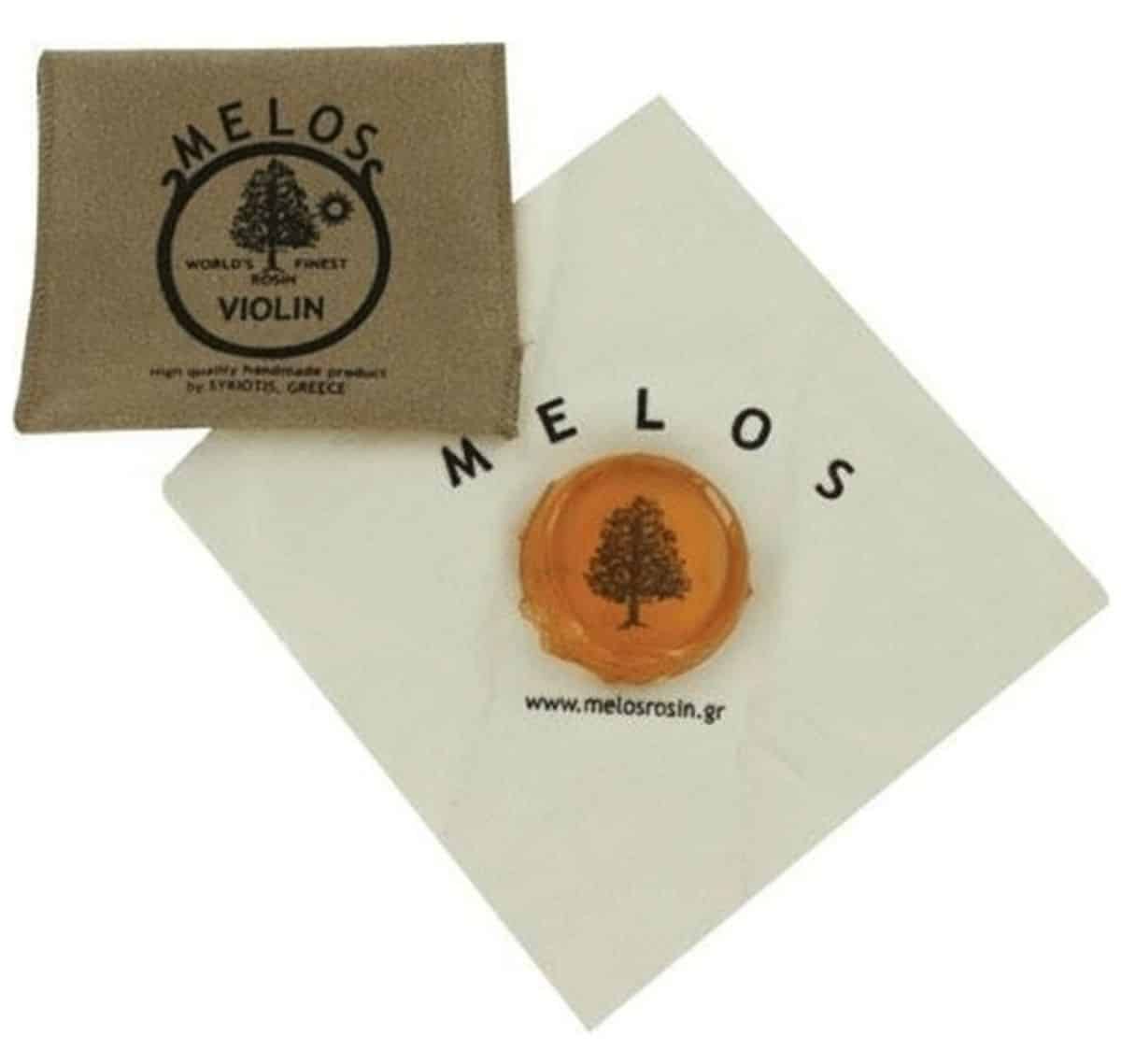
FEATURES: 100% Hand-crafted Rosin
OTHER INFO: Designed To Maximize The Potential Of Violin Players
- Made from the finest quality Greek pine tree resins
- Professional product that is manufactured without any other materials
- Rosin's light version is helpful in summer
- None!
When you click ‘Check Price’, you’ll see there are loads of great places to buy this item. Our personal favorite is Sweetwater for the US, and Thomann and Gear4Music for the UK & Europe.
They are the largest music retailers, with excellent customer service, competitive prices, really fast shipping, and the longest guarantees.
The professional musician who wrote this article combined many things,
from the product build, manufacturer’s reputation through to feedback
from other users, to create our famous TedScore™.
BEST OVERALL VIOLIN ROSIN:
D’Addario Kaplan Premium Rosin
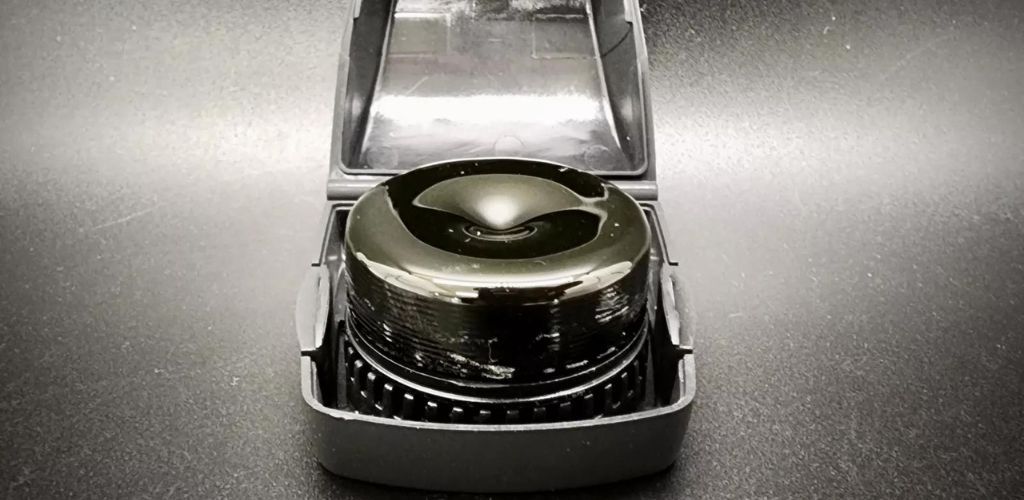
I usually recommend the D’Addario Kaplan Premium Rosin to professionals because it provides a consistently smooth grip that really enhances the violin’s tone. It also comes with a case that helps with fast application, making it an all-around reliable choice for my performance.
D'Addario's Kaplan Premium Rosin
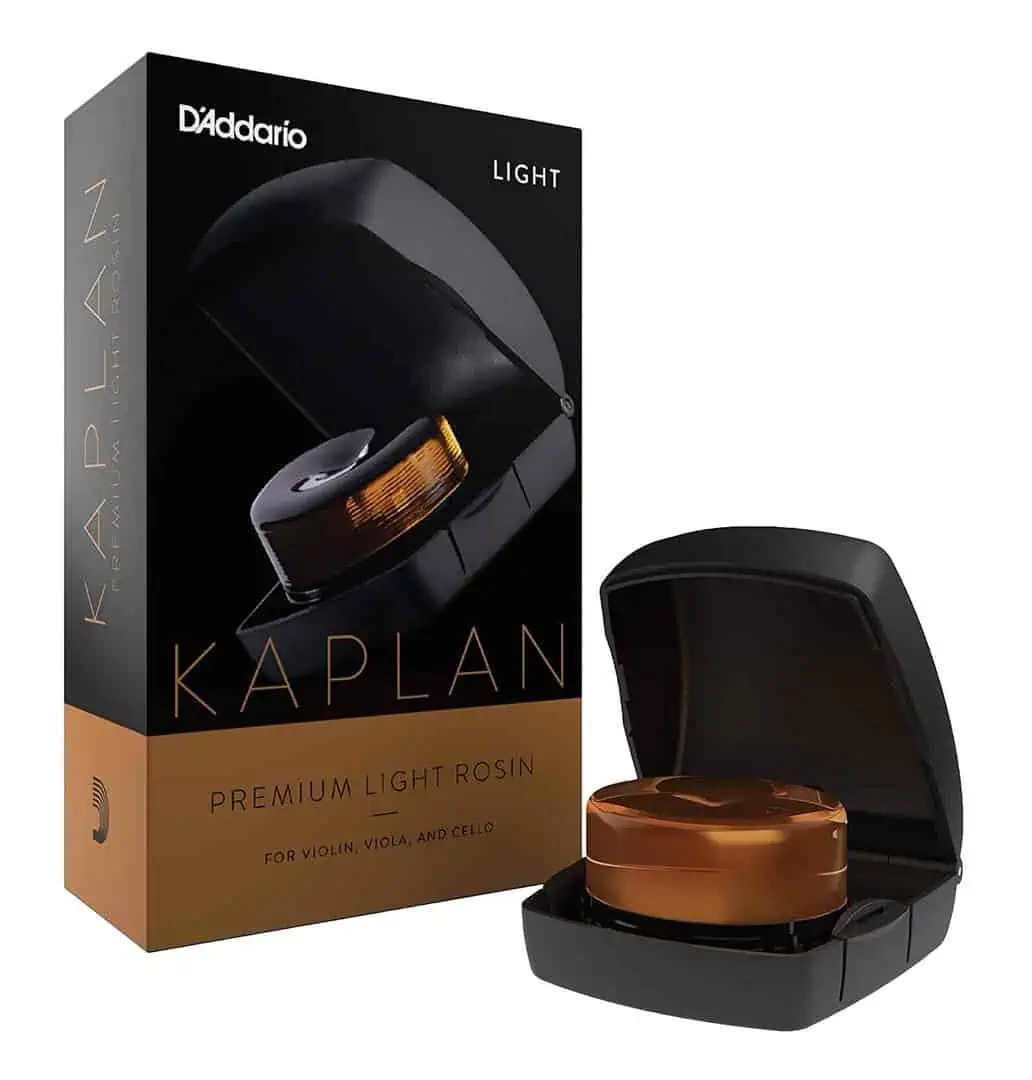
FEATURES: Uses The Original Recipe Handed Down From Ladislav Kaplan
OTHER INFO: Available In Light And Dark Varieties
D'Addario's Kaplan Premium Rosin
- Low Dust
- Designed for easy one-handed use
- Rosin comes with a case
- None!
When you click ‘Check Price’, you’ll see there are loads of great places to buy this item. Our personal favorite is Sweetwater for the US, and Thomann and Gear4Music for the UK & Europe.
They are the largest music retailers, with excellent customer service, competitive prices, really fast shipping, and the longest guarantees.
The professional musician who wrote this article combined many things,
from the product build, manufacturer’s reputation through to feedback
from other users, to create our famous TedScore™.
How to Clean Violin Strings:
A Recap
Always remember that cleaning your violin strings is essential for maintaining sound quality. It will also improve their life, which is excellent for your wallet (knowing that they can be an expensive instrument!).
First, you’ll need to know and gather supplies: a clean cloth, alcohol, and string cleaner. Oh! Never use water, by the way; it’s not a friend to your strings.
Gently wipe down your strings with a cloth after every practice session. This removes rosin buildup and keeps the sound crisp.
For a deeper clean, apply a small amount of alcohol or string cleaner on a different cloth. Carefully rub each string, but avoid the violin body to prevent damage.
Finally, keep your hands clean before playing; it’s a simple trick that goes a long way. Clean hands, clean strings, happy violin!

And that’s it!
By following these steps, your clean strings will perform beautifully and tune up for upcoming sessions. Happy playing!
Wait, there’s more!
If you find it hard to choose which violin string is best for you and want to know how read this article to help you decide.
FAQ's
The best way of cleaning strings is to wipe them with a soft, dry cloth after playing sessions to remove rosin dust and oils. For more thorough cleaning, occasionally dampen a microfiber cloth with alcohol and carefully swipe it along the entire string. Keeping your violin strings clean is a routine that will keep them in optimal condition for clear, vibrant sound.
Yes, you can use it to clean violin strings, but it must be done cautiously. Apply a small amount of alcohol to a soft cloth and gently wipe clean the strings, protecting your violin’s body or varnish from it, as it can cause damage. Always ensure your violin is completely dry before playing it again.
Absolutely! Wiping off your violin strings regularly is essential to maintain their responsiveness and sound clarity. After each practice or performance, gently rub and remove the excess rosin to prevent build-up, which can deaden the strings and affect your instrument’s tone. Regular cleaning will also extend the life of your strings and keep your violin sounding its best.
The black stuff on your violin strings is typically a mixture of accumulated rosin dust, oils from your fingers, and dirt. This build-up occurs over time as you play, and if not cleaned regularly, it can harden and affect the sound quality produced by your strings. Regular cleaning of the top cleaning your strings can prevent this accumulation and preserve the vibrant tone of your violin.



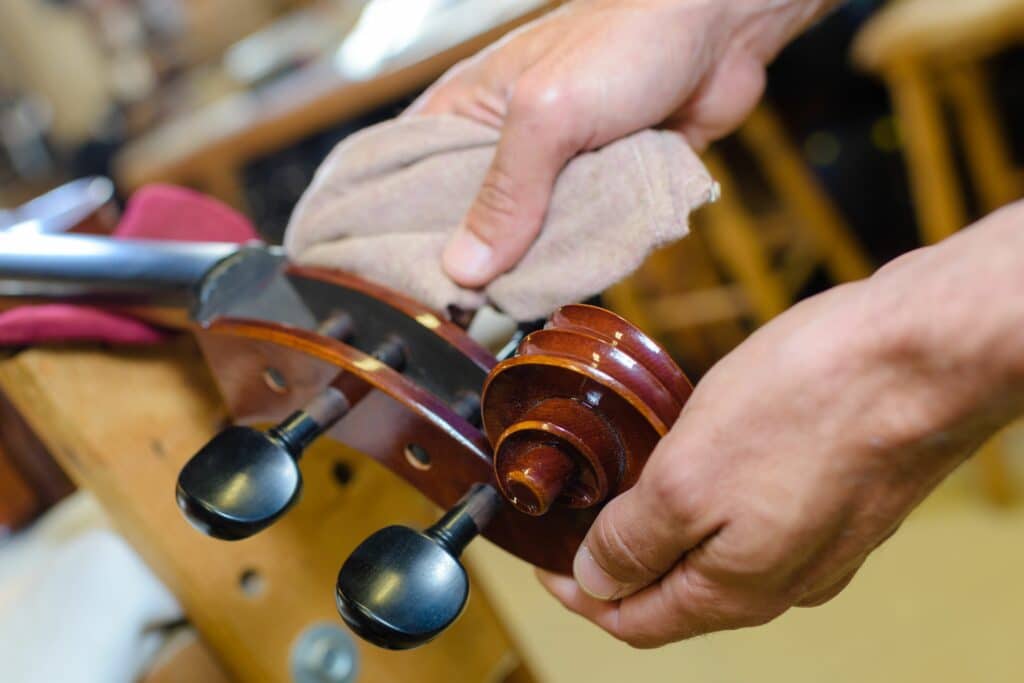

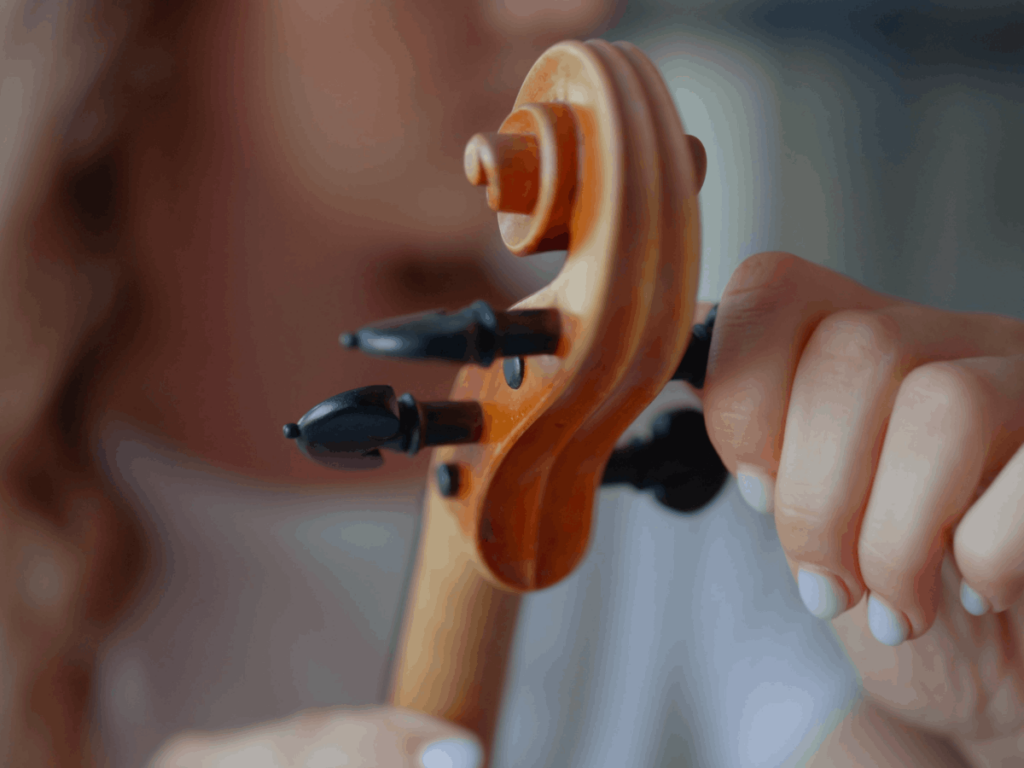
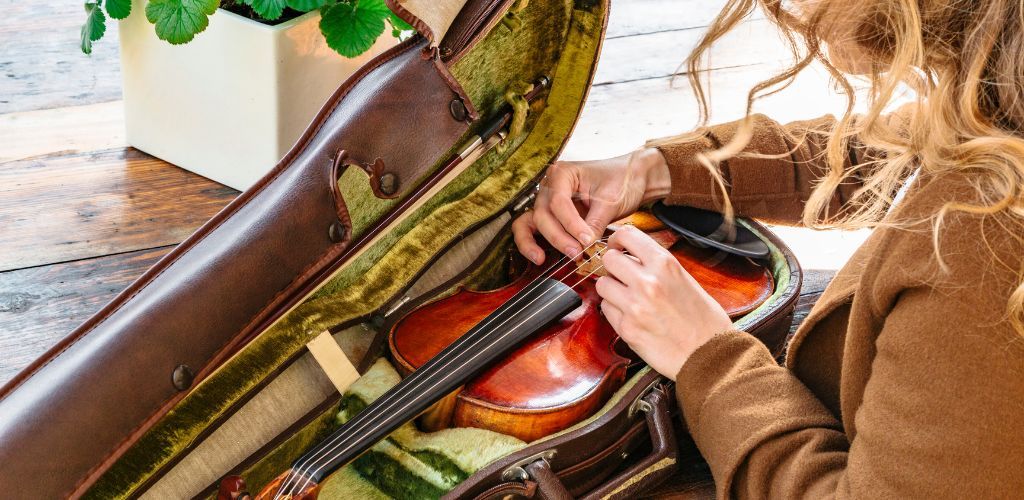
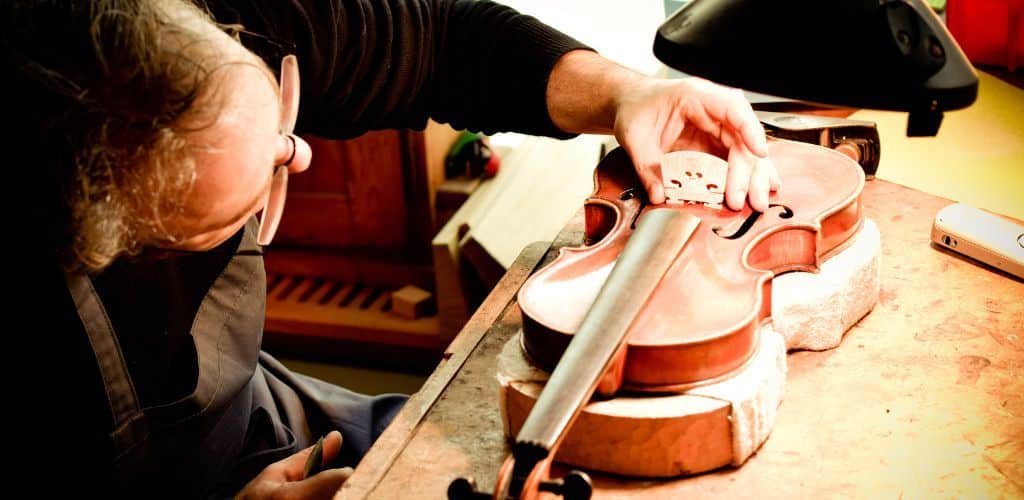









Really loved the rosin recommendations here, especially the shoutout to Melos Violin Rosin – it’s been a game-changer for my students! It’s not easy to find quality advice on rosin options, so kudos to Anna Bringham for highlighting these. Would love to see more articles like this geared towards student musicians. Keep up the great work!
always telling my students about the importance of regular maintenance with their instruments, gonna show them this article next class. really think the bit about avoiding damage and the rosin recommendations could make it click for them. hadn’t heard of melos violin rosin before, might give it a try in my own practice and see if it makes a difference
I’ve tried dozens of rosin types, and honestly, they all seem the same after a while. I noticed you rated the D’Addario Kaplan as the best overall, but is it really that much better than any generic brand? Seems like overpriced hype to me.
While I appreciate the insights on cleaning violin strings, I believe the article understates the importance of choosing the right type of cloth for wiping down the strings. Not all fabrics are created equally; microfiber is ideal due to its softness and lint-free properties, ensuring no additional residue is left on the strings. Also, proper maintenance extends beyond simple cleaning. Attention should also be given to how the violin is stored, as humidity and temperature greatly influence the condition of the strings and overall instrument health. Anna Bringham , your article provides a good starting point, but these nuances could enhance the reader’s understanding and care of their instrument.
Great article! I’ve always struggled with keeping my violin in top condition, and this guide makes it seem so much more approachable. Thanks, Anna!
oh great, another thing to clean. as if i didn’t have enough to do already lol
hey Anna , i was going through your piece on cleaning violin strings and got stuck at the part about rosin build-up. i’ve been playing for a few years but never really gave much thought to how often i should clean it off. is there like a rule of thumb for how frequently we should be doing this to keep the sound quality sharp? appreciate all the info!
wondering the same been playing for a bit but never cleaned it lol
hey everyone, i just started learning the violin and came across this article about cleaning strings, which is super helpful. but i got a question, how often should i actually clean the rosin off my strings? i’m a bit worried i might overdo it or not do it enough. also, is it cool to use the same cloth for the body and the strings, or is that a no-go? thnx!!
Hey VioletRaye, a good rule of thumb is to clean your strings every time you finish playing. And it’s best to use separate cloths to keep things tidy!